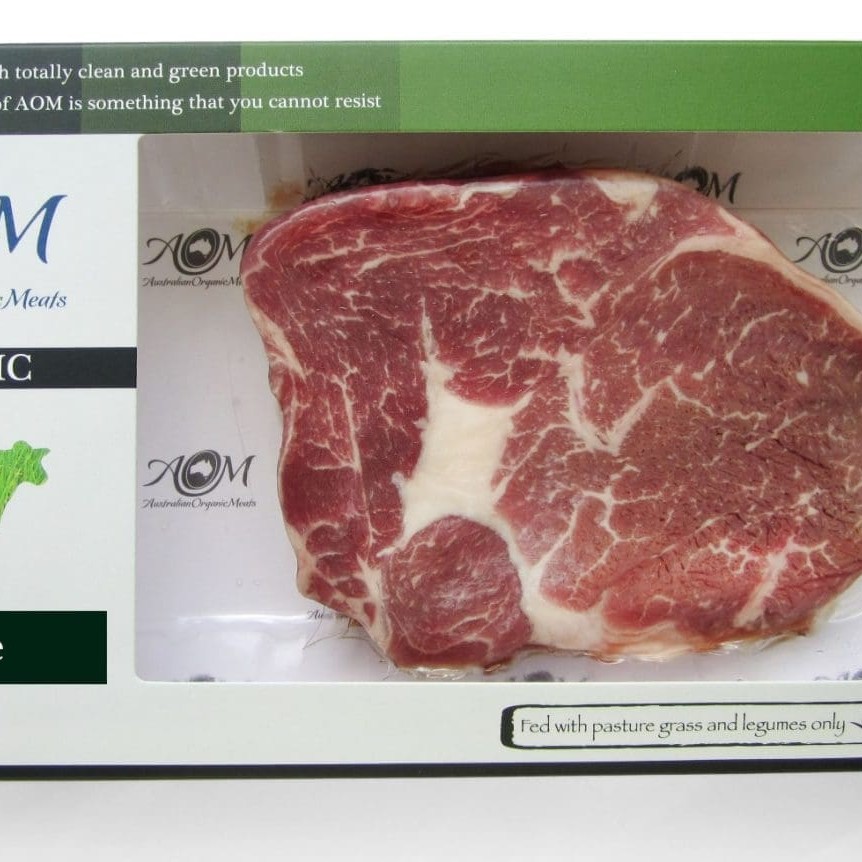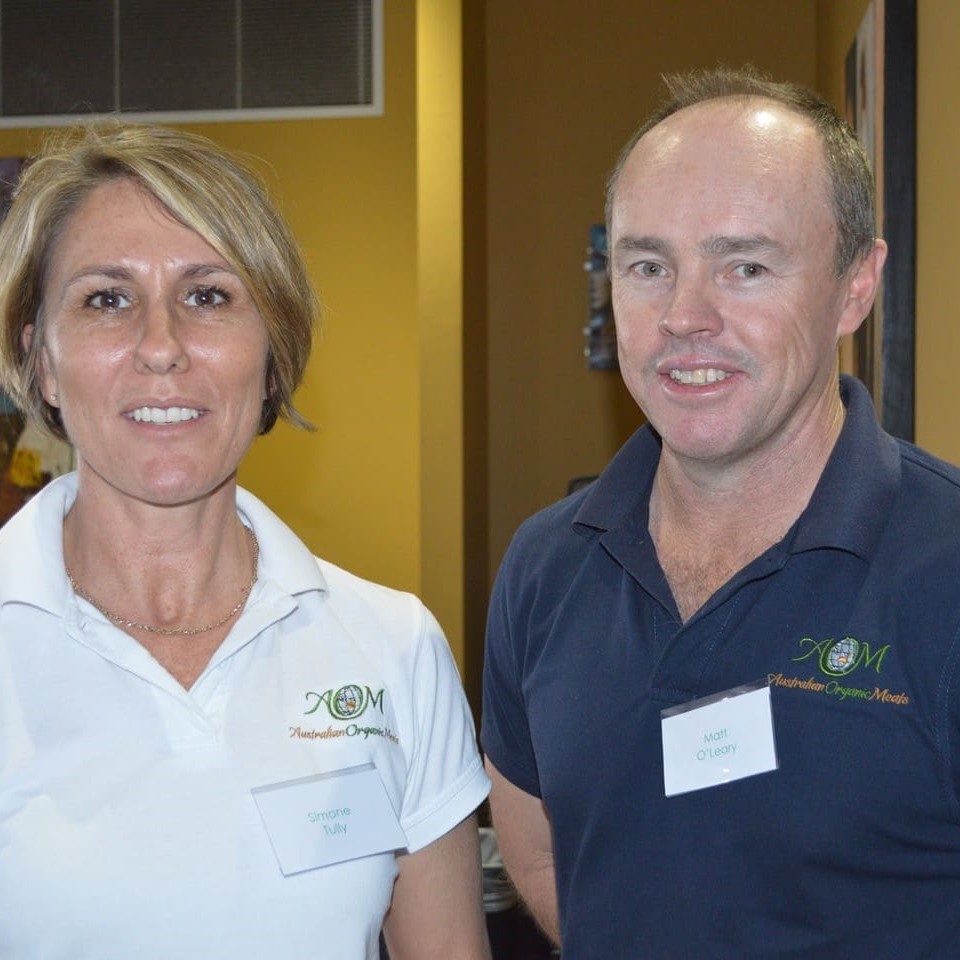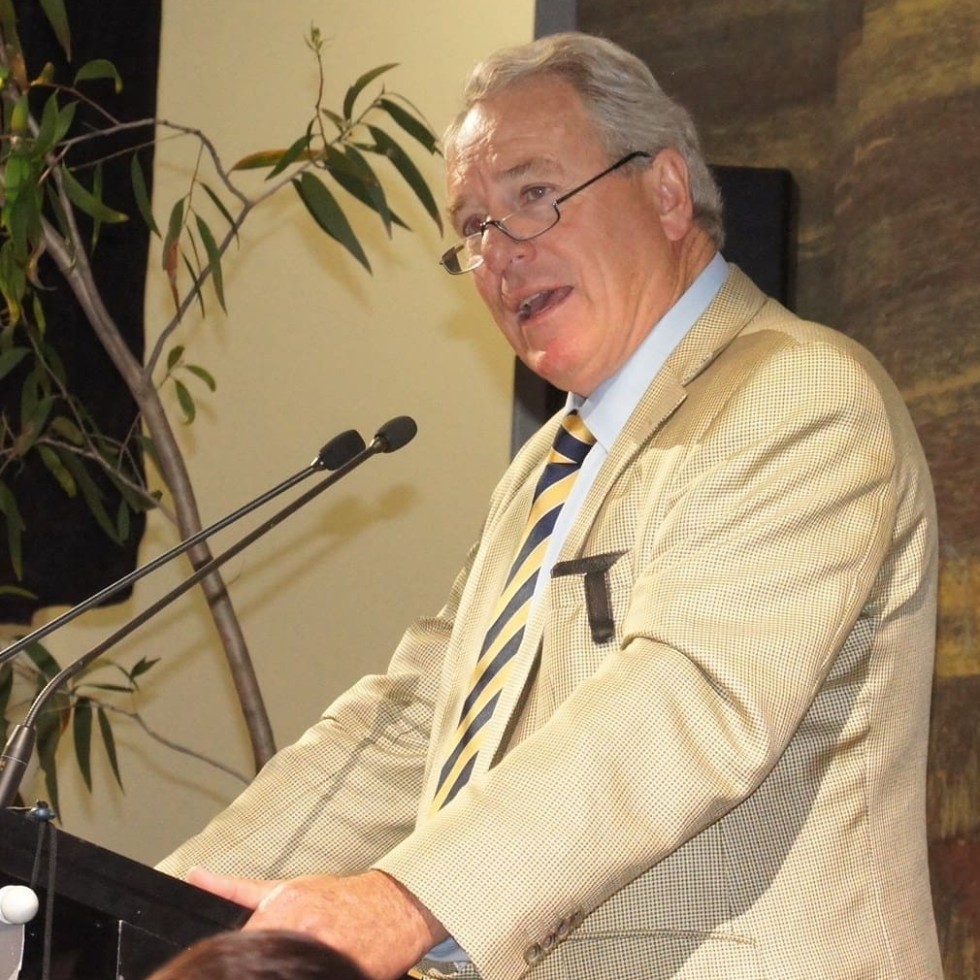 An MLA Donor Company project which has set itself the ambitious target of lifting Australia’s Certified Organic beef turnoff by 30,000 cattle each year is off to a flying start.
An MLA Donor Company project which has set itself the ambitious target of lifting Australia’s Certified Organic beef turnoff by 30,000 cattle each year is off to a flying start.
The first of a series of five or six regional workshops was held yesterday at Emerald, on Queensland’s Central Highlands, and attracted a strong gathering of more than 50 participants keen to learn more about conversion to Organic production.
The attendance was perhaps twice what organisers had originally anticipated, and came despite a number of interested parties who could not attend because they either had cattle on the road due to drought, or who got a localised freak storm the night before and couldn’t leave home.
The two-year project, co-funded by Meat & Livestock Australia and the Australian Organic Meat Group (AOM), is designed to address at least some of the huge shortfall in meeting global demand for Certified Organic beef products.
In addition to the direct contact with interested producers through the workshops, the project also aims to:
- quantify and demonstrate the economic benefits of organic beef production via a series of case studies
- produce a suite of extension resource materials for producers considering joining Organic programs, and
- deliver one-on-one technical extension support to producers either considering or in the process of converting to organic production.
The project has set a target of enlisting another 100 commercial cattle producers across Queensland, NSW, Victoria and WA, with a target of producing an additional 30,000 Certified Organic carcases each year.
Participants at yesterday’s Emerald workshop were drawn from a wide area of Central Queensland, north to Clermont, Nebo and Sarina and west to Alpha.
“At this point, I would suspect at least 50 percent, perhaps more, of yesterday’s participants are likely to enter the Organic certification process,” one of the project coordinators, Marg Will said.
Ms Will said the main focus of the day was on what’s involved in the certification process and how to go about it; and how to manage some of the Organic production challenges such as ticks and buffalo fly through non-conventional means. Other discussion focussed on ways to avoid using urea, a source of bypass protein used widely in supplementation, with sources of true protein.
Some workshop attendees questioned whether the current demand for Organic beef would last or was simply a fad. Co-convenor Simone Tully, from Australian Organic Meats, was able to provide a detailed explanation of the huge worldwide demand for Organics, which was continuing to grow at a rapid pace.
 Potential premiums for Certified Organic cattle also attracted discussion, with 30-40 percent common. Perhaps more importantly, it was the consistency in pricing for Organic cattle which is a key feature, with little of the volatility seen in the conventional cattle market, Ms Tully said.
Potential premiums for Certified Organic cattle also attracted discussion, with 30-40 percent common. Perhaps more importantly, it was the consistency in pricing for Organic cattle which is a key feature, with little of the volatility seen in the conventional cattle market, Ms Tully said.
While the full Organic certification process takes three years, the important thing is to make a start, participants were told. Those entering the program will now be given assistance in choosing an Organic certifier, completing their application process, getting management plans in place, and undergoing their first audit.
MLA’s manager for on-farm production Dr Wayne Hall said one of the reasons the MLA Donor Company was partnering in the project was to get firm data on the cost-benefits of Organic beef production.
“The premiums for organic beef are large, but there is limited data available on the costs of conversion. This project will help producers access the necessary information to make sound business decisions and to assess the risks involved in conversion to Organic status,” Dr Hall said.
“It will also generate industry extension materials which will be valuable for the entire beef industry.”
Strong future for Organic supply
Another stakeholder who expresses great optimism about future prospects for Certified Organic beef supply is Richard Rains, recently retired chief executive of large non-packer beef exporter, Sanger Australia.
Mr Rains spoke at length about organic prospects during his address to a recent Rural Press Club gathering in Brisbane.
An extension of Sanger’s business is the Organic Meat Company, headed by Alastair Ferguson, which has grown to become the largest organic beef processing operation in the country.
Now operating as its own entity, OMC last year merged with the well-established Cleavers Organic business (the dominant player in retail packed organic meat in Australian supermarkets), creating a new entity, Arcadian Organic and Natural Meat Co.
Today, Arcadian processes 600-650 Certified Organic cattle each week for domestic and export markets through a service kill at the Stanbroke Beef plant at Grantham, in Queensland’s southeast.
 “The program is continuing to grow, but all too slowly for our liking,” Richard Rains told the recent Brisbane audience.
“The program is continuing to grow, but all too slowly for our liking,” Richard Rains told the recent Brisbane audience.
“We’d love to be able to do more, but there just isn’t the supply of Organic cattle out there to meet the demand, at present,” he said.
While a lot of the Arcadian product goes into the domestic market via the supermarket sector, the largest export market is the US.
“In our opinion, the majority of consumers purchasing Organic meat don’t do so for taste reasons,” Mr Rains said. “They want a product that is more natural, with no additives, and it is a trend that is much more common across ‘consumer-world’ today. Food contamination scares around the world are making some consumers more focussed on Organic-type products that don’t necessarily have those additives,” he said.
Mr Rains mentioned the recent publicity in the US over the use of beta agonist growth promotants as an example.
“But producing organic isn’t easy – from the time the producer puts up their hand and says they want to be a part of it, to when they achieve full certification, it’s a three-year process.”
“That’s a distinct barrier to entry, and its part of the reason why there aren’t as many Organically certified cattle as we need,” he said.
“But equally, organic protein is one of the few agricultural commodities where supply does not go close to keeping up with global demand. It’s a unique place to be in, in the food/agricultural world.”
Mr Rains said he would ‘implore’ anybody whose production circumstances made it possible, to consider conversion to Certified Organic.
“We previously were paying a premium worth around 25pc over conventional cattle for Certified Organic slaughter cattle, but this year we’ve stepped that up to more like 40pc. There’s a big premium incentive there, especially when times are tough,” he said.
Mr Rains said the chairman of one of Arcadian’s major US customers, the hugely successful Wholefoods Organic/Natural retail supermarket chain, had told him that while US consumers generally were eating a little less meat, they increasingly wanted to know where and how it was raised.
“They want to feel good about the meat that they buy – the quality, taste and nutrition – while knowing that those animals have been raised with the highest animal welfare practises in the world, he told me.”
Industry estimates suggest there are currently around 300,000 cattle in Australia managed under Certified Organic principles by only 196 certified producers, producing about 50,000 certified slaughter cattle each year.
By comparison, Uruguay currently runs about 500,000 head of Certified Organic cattle, and plans to increase its yearly kill by 30-40pc by 2015.
- A number of similar workshops are planned across Queensland, NSW, Victoria and WA over coming months. Beef Central will advise readers of dates and venues as they are decided.
